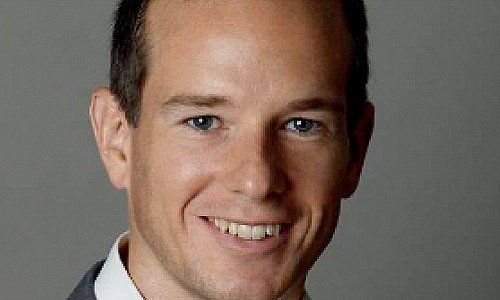Nest, a fintech investment company, is eager to scale into emerging startup economies and continue to offer a network across a wider range of cities, CEO Lawrence Morgan says in an interview with finews.asia.
Mr. Morgan, you have built an ecosystem that services early stage, high growth businesses. How influential has the fintech segment been in this development?
The financial industry has long been a leading adopter of new technologies, as access to information on a time critical basis is the key driver of markets. The transformative and disruptive impact of the financial crisis of 2008 has further sped up the need for fintech adoption to reduce overheads and find innovative ways to engage customers in a landscape of increasing regulation and compliance.
Fintech has led startup ecosystem development in many economies. Finance has historically been a key pillar of an economy in global cities, and with significant IT departments (and budgets) increasingly is partnering with third party vendors to solve its needs.
«The financial needs of customers in Asia varies greatly from region to region»
At Nest we work with leading international banks such as OCBC to help them find and integrate technology that will give them an advantage over their competition.
Several cities are battling to be the leading Asian fintech hub. Are they all going to be winners?
The financial needs of customers in Asia varies greatly from region to region. The core philosophy of the lean startup movement is to be close to and engage the customer very early in the product development cycle. As a result, a multi-hub fintech ecosystem could well be the winning model, each catering first to the needs of their local markets before expanding globally.
As a person with a strong banking background has a fintech startup really excited you recently?
Having been a trader for over a decade in the credit markets, I am energized by startups targeting the retail investor in debt markets for the first time. In this sector there is a company called bond.it in our OCBC cohort at present addressing this very issue. More broadly the big, industry-transforming technology on the horizon in fintech involves the application of a distributed ledger (i.e. blockchain) to streamline settlements, the middle and back office functions and also conform to regulation.
«Long story short, Nest invests in the smartest people over the best technology»
With such a large purpose, all the stakeholders need to be involved and aligned in what the industry is calling ‘consortium blockchain’. At present, we can’t tell which operators will offer the winning platform.
Is it the people or the innovation that you eventually invest in?
Nest invests in seed stage startups many of which are working to find product-market fit. We therefore invest in the people with the skills, experience and discipline to iterate their businesses successfully. Long story short, Nest invests in the smartest people over the best technology.
You work closely with major Asian banks and others in bringing fintech innovators into their domain. Some say banks are keen to buy the new developments in order to cull them and protect their own business, what is your view?
The financial institutions we partner with are all keen to see fintech develop for the benefit of the industry as a whole. And this is not just talk – none of them have any form of exclusivity or dominant shareholding in the startups in our ecosystem, but they are genuinely eager to support them in their quest to scale to a level of commercial validation.
«The year ahead will see explosive growth in engagement by all stakeholders»
On the other hand startups want to work with financial institutions so they can develop faster pathways to adoption and integration.
What does Nest and Lawrence Morgan have in store for the next year in Asia?
In Asia we have now surpassed a tipping point of critical mass in many cities, so the year ahead will see explosive growth in engagement by all stakeholders, from governments and corporates through to investors and startups with a focus on Asia. Within this context, Nest is eager to scale into emerging startup economies and continue to offer the Nest network across a wider range of cities.
Lawrence Morgan co-founded Nest in 2010 and held the position of COO until April 2016 when he became CEO. As an entrepreneur and startup investor, Lawrence Morgan has built, scaled and exited businesses across sectors including property, media, finance, marketing and manufacturing. He is passionate about supporting founders and powering up early-stage companies so that they can achieve rapid growth.
With a long family history of entrepreneurship, Lawrence’s calling to the world of building businesses started at the age of 12. Moving to Hong Kong in 2004, he started three businesses within his first year, whilst quickly establishing himself as an investor and advisor to startups.



















